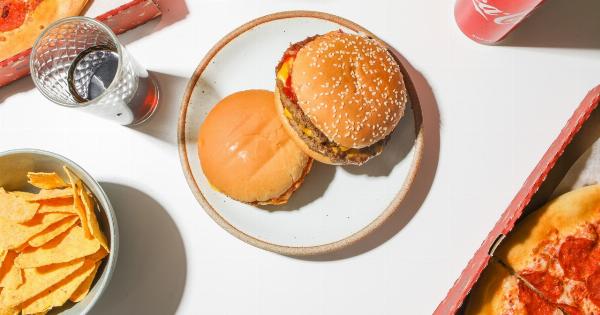Breakfast is often referred to as the most important meal of the day, providing us with energy to kickstart our morning and set the tone for the rest of the day. However, not all breakfast foods are created equal.
Some popular choices may be doing more harm than good to our overall health and well-being. Let’s take a closer look at the foods you should remove from your breakfast routine to make healthier choices.
1. Sugary Cereals
Starting your day with a bowl of sugary cereals may give you an initial energy boost, but it won’t last long.
These cereals are packed with refined sugars, artificial flavors, and colors, which can lead to energy crashes, sugar cravings, and weight gain. Swap sugary cereals for whole-grain options with low added sugar or opt for a homemade granola mix with nuts, seeds, and dried fruits.
2. Commercial Fruit Juices
Although fruit juices may seem like a healthy choice, especially when they are marketed as “natural” or “100% pure,” many store-bought fruit juices are loaded with added sugars and lack the beneficial fiber found in whole fruits. Instead, choose to eat whole fruits or make your own freshly squeezed juice at home without the addition of any sweeteners.
3. Flavored Yogurts
Flavored yogurts are often full of added sugars and artificial ingredients. These yogurts may seem convenient and tasty, but they can contribute to weight gain and blood sugar imbalances.
Opt for plain Greek yogurt and add your own fresh fruits, nuts, or a drizzle of honey for natural sweetness.
4. Processed Meats
Many breakfast options include processed meats like sausages, bacon, or ham. These meats are high in sodium and unhealthy fats. Regular consumption of processed meats has been linked to an increased risk of heart disease and certain types of cancer.
Choose lean protein sources such as eggs, turkey, or smoked salmon as a healthier alternative.
5. White Bread and Pastries
White bread and pastries may be delicious, but they are made from refined flour that lacks essential nutrients and fiber. These refined carbohydrates can cause blood sugar spikes and crashes, leaving you feeling hungry and tired shortly after breakfast.
Opt for whole-grain bread or homemade whole-grain muffins for a healthier choice.
6. High-Sugar Spreads
Many people enjoy spreads like jam, chocolate spreads, or flavored cream cheese on their breakfast toast or pastries. However, these spreads are often loaded with added sugars, unhealthy fats, and artificial ingredients.
Instead, try natural nut butter (such as almond or peanut butter) or avocado for a healthier and more nutrient-dense option.
7. Pre-Packaged Smoothies
Store-bought pre-packaged smoothies may seem like a convenient way to get your daily fruit intake, but they often contain high amounts of added sugars, artificial flavors, and preservatives.
These processed smoothies can be deceivingly high in calories and may not provide the same nourishment as freshly made smoothies at home. Make your own smoothies using fresh fruits, leafy greens, and a liquid of your choice (such as water or almond milk).
8. Sugary Coffee Drinks
Sipping on sugary coffee drinks, such as flavored lattes or frappuccinos, may seem like a treat, but they are essentially cups of liquid sugar. These beverages often contain excessive amounts of added sugars, unhealthy fats, and artificial flavors.
Opt for black coffee, herbal tea, or try adding a small amount of unsweetened almond milk or natural sweeteners like cinnamon or vanilla extract.
9. Pre-Made Breakfast Bars
Although they are marketed as nutritious and convenient breakfast options, many pre-made breakfast bars are packed with added sugars, artificial sweeteners, and preservatives.
These bars often lack essential nutrients and can leave you feeling unsatisfied. Instead, make your own homemade granola bars using whole grains, nuts, and dried fruits for a healthier and more wholesome alternative.
10. Frozen or Processed Breakfast Sandwiches
While frozen or processed breakfast sandwiches may be a quick and easy option, they are typically loaded with unhealthy ingredients such as refined grains, processed meats, and excessive sodium.
These sandwiches often lack essential nutrients and can contribute to weight gain and elevated cholesterol levels. Instead, prepare your own breakfast sandwiches using whole-grain bread, lean protein, and fresh vegetables.






























